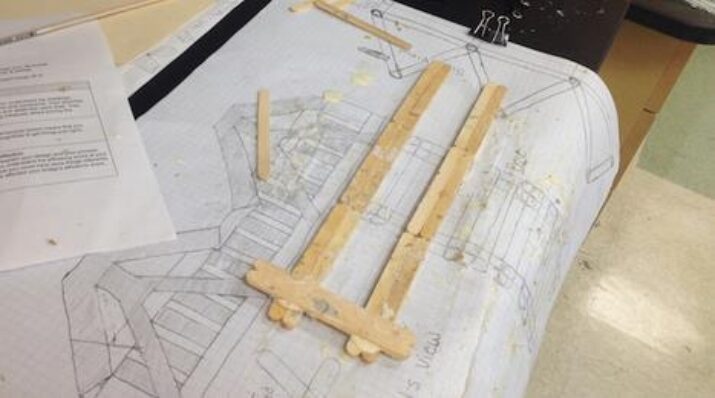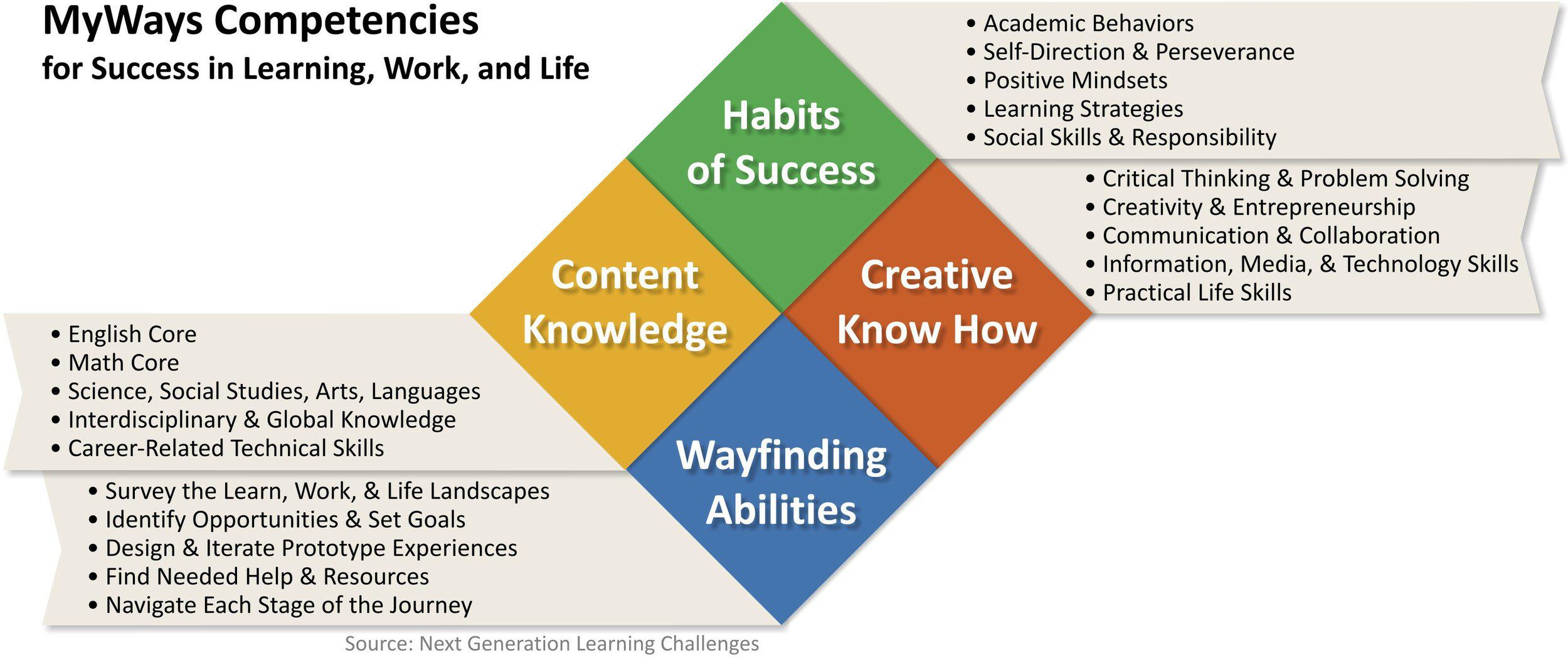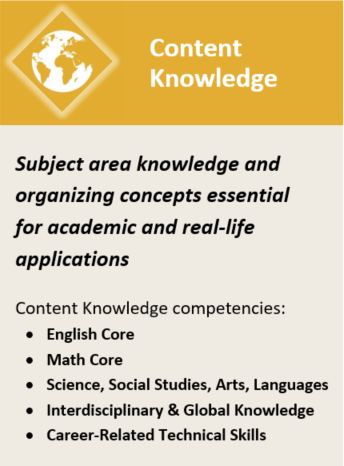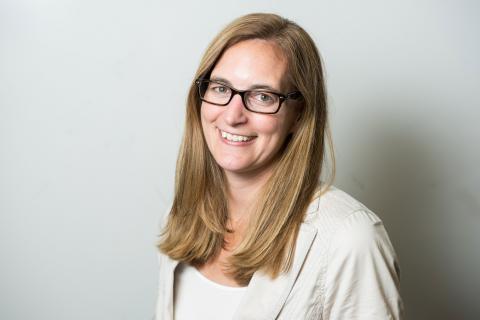New Designs for School
A Deeper Look at Content Knowledge
Topics

We’ve all had the experience of truly purposeful, authentic learning and know how valuable it is. Educators are taking the best of what we know about learning, student support, effective instruction, and interpersonal skill-building to completely reimagine schools so that students experience that kind of purposeful learning all day, every day.
NGLC's MyWays Student Success Framework introduces personalized depth as well as future-facing breadth when it comes to Content Knowledge.
This post originally appeared on Learning Deeply on Education Week.
K-12 education today prioritizes content knowledge over the learning of other skills, abilities, and dispositions. In order to push K-12 beyond current practice, conversations about deeper learning tend to skip past content knowledge to focus on the kinds of learning that are often neglected in schools. At Next Generation Learning Challenges (NGLC), we see a similar pattern in conversations about the MyWays Student Success Framework.
Content knowledge is one of four student success domains in the MyWays framework, but it's rarely the one educators get most excited about. It's usually one or more of the three other domains of the framework that capture their attention: Wayfinding Abilities, Habits of Success, and Creative Know How. And for good reason.
There's so much new ground to cover to support the development of these additional competencies. And schools like Two Rivers Public Charter School in Washington, D.C., the Workshop School in the School District of Philadelphia, and Valor Collegiate Academies in Nashville are making strides in developing new learning and assessment strategies for social-emotional learning, wayfinding, and other 21st century skills.

The MyWays framework—a distillation of 25 existing competency frameworks--is the result of a three-year project at NGLC to define the outcomes today's youth need to achieve in order to truly succeed in learning, work, and life. The framework integrates research and practice from youth development and workforce development with that of education. It encompasses a much broader and deeper set of competencies than traditional definitions of success.
Even while broadening and deepening the field's understanding of student success, however, the MyWays framework holds content knowledge right up there alongside the other competency domains. And our team's research has led to some important considerations when it comes to content knowledge. Considerations that are just as crucial to deeper learning as the work going on across the other domains.
What's New about Content Knowledge
MyWays authors Grace Belfiore and Dave Lash write, "Whether core math or English, the sciences or the arts, to assume the new goal-line content knowledge looks like traditional curriculum would be to overlook critical changes in the nature of the knowledge competencies that today's students need."
In other words, this is not the content knowledge you learned when you went to school.

Content Knowledge—for the Life Students Will Lead is a new report by Belfiore and Lash that was released this month by NGLC as part of the MyWays Student Success Series. (All of the reports—covering not only the four domains in the MyWays framework but also the real-world changes affecting today's students and the learning and assessment design implications of a broader and deeper student success competency set—are available on the MyWays website.)
Not everything is new. English, math, science, and social studies are prominent in the framework because they are perhaps more vital in today's knowledge economy than when middle-skill jobs, like those in manufacturing and the trades, supported a thriving middle-class.
What is new is that the learning of these disciplinary knowledge competencies needs to shift away from a "mile wide and an inch deep" approach to one that involves making choices among competing priorities and developing individual paths for students through the content. This includes the addition of interdisciplinary content and real-world connections so students may "understand and act on issues of global significance." And the research strongly suggests that all students should gain career-related technical knowledge in at least one interest area, even for those headed to college.
3 Key Principles to Go Deeper with Content Knowledge
The MyWays Content Knowledge domain extends beyond core math and English while also promoting deeper, more interdisciplinary learning. Educators must therefore make choices both in how wide and how deep the learning should be. MyWays guides educators in these choices with three key principles.
"There is insufficient acknowledgement to date among practitioners," write Belfiore and Lash, "that, in order to adjust to a super-abundance of information and the reality of an uncertain and complex future, the nature of the content to be learned within each of those subjects also needs to be very different. We recommend addressing this challenge with the guidance of the key principles":
- Focus on a few "high-leverage" constructs
- Use learner-driven, real-world experiences
- Develop "T-shaped" knowledge
Focus on a few "high-leverage" constructs: Educators can go deep with these content knowledge competencies by focusing on "big understandings." Cover fewer concepts, but cover them rigorously. Find concepts central to a discipline. Find complex and adaptable concepts that develop higher-level, deeper thinking. Find concepts relevant to today and tomorrow, not yesterday. Drop concepts that don't matter to the lives of today's students.
Use learner-driven, real-world experiences: When students engage with content through active, interest-based, collaborative, and authentic experiences, they are more likely to master the content, by improving "durable retrieval, deeper understanding, and prospects for transfer." Use project-based, problem-based, service-based, and place-based learning. They support mastery and integrate learning across all four domains of the MyWays Student Success Framework. And they create memorable moments—the kind students remember forever.
Develop "T-shaped" knowledge: Relying on multiple sources who have used the T-shape to describe the breadth and depth of learning, Belfiore and Lash use the letter "T" to represent a strong foundation in a broad range of content knowledge combined with deep expertise in one or more chosen areas. Help students find their passions, and align opportunities for developing depth of expertise in one of those passions or career goals.
The report provides valuable recommendations, examples, and resources, beyond this brief summary of the key principles, for bringing a new kind of content knowledge to life in schools. Even as much work needs to be done to make Habits of Success, Creative Know How, and Wayfinding Abilities central to the learning experience in schools, there is also incredible opportunity to reimagine content knowledge, the experience of learning it, and the ways it can and should flow through the other MyWays domains. This is exciting work! And doing it well means youth will be better prepared for this challenging, unpredictable world.




